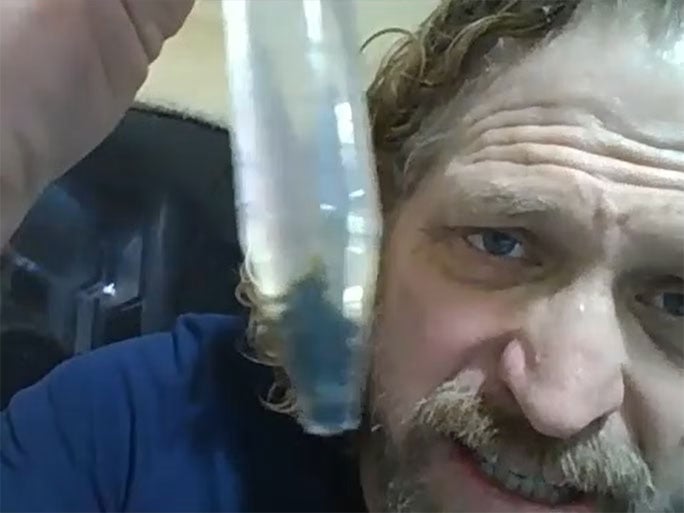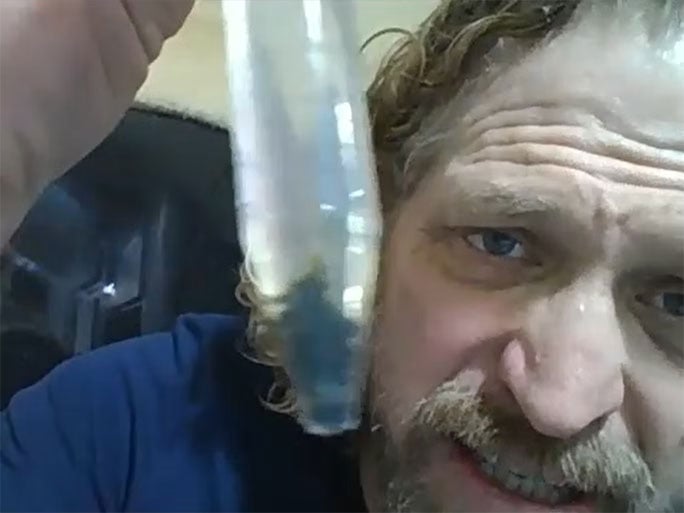Florida: A scientist who has been living at the bottom of the ocean in the US state of Florida for the past 30 days has claimed to have discovered a new species of living organism.
According to US media reports, Dr. Joseph Duttori, a former US Navy officer, is attempting to break a world record by spending 100 days in a residence 30 feet (9 meters) below the sea in Florida.
Joseph is also conducting scientific research on the effects of extreme stress on the body for a long period of time, but after a month of this experiment, his team unexpectedly discovered a different scientific method. has discovered
Joseph Duttori has not seen the sun for the past month and will not see the sun for several more months. The hotel is at ‘Jol’s Under Sea Lodge’.
Biomedical engineering professor Joseph Dituri started his underwater adventure last week. If all goes as planned, he won’t return to the Earth’s surface until June. https://t.co/tXR9xfvwTx pic.twitter.com/FQYDlVuoou
— USA TODAY (@USATODAY) March 18, 2023
“We have found a single-celled ciliate, a single-celled organism that we believe is a completely new species to science,” Dr Dattori told the media. Thousands of dives have been made in the area, during which time the species has been here, but no one had yet seen one.


Microbiologists will examine the sample and determine whether or not it is a new species.
Dr. Duttori, who attempted the 100-day record, says a month later that he “feels amazing,” even though scientists estimate that the stress on his body during the 100-day run will be about the same. As a result, they can lose about an inch in height, just as astronauts grow about 3 percent taller after spending time in the weightlessness of space.
Dr. Dattori is constantly monitored by a medical team underwater, often sending urine and blood samples to the surface for analysis, ultrasounds, electrocardiograms and stem cell tests, as well as psychological evaluations. Science has also hypothesized that pressures about 1.6 times higher than surface pressure lead to improved health, and have been linked to aging.
“We already know that when the pressure is halved, the number of circulating stem cells in the body doubles,” says Dr. Joseph. He said that while underwater, their telomeres would be longer and possibly prevent aging. Protects the genome from nucleolytic degradation. Joseph said that being underwater will also increase their muscle and bone density.
However, some unexpected side effects have also occurred, Dr. Duttori says, making certain bodily functions, such as urination, more difficult due to increased pressure underwater.
Comments
(function(d, s, id) {
var js, fjs = d.getElementsByTagName(s)[0];
if (d.getElementById(id)) return;
js = d.createElement(s); js.id = id;
js.src = “//connect.facebook.net/en_US/sdk.js#xfbml=1&appId=1763457670639747&version=v2.3”;
fjs.parentNode.insertBefore(js, fjs);
}(document, ‘script’, ‘facebook-jssdk’));



